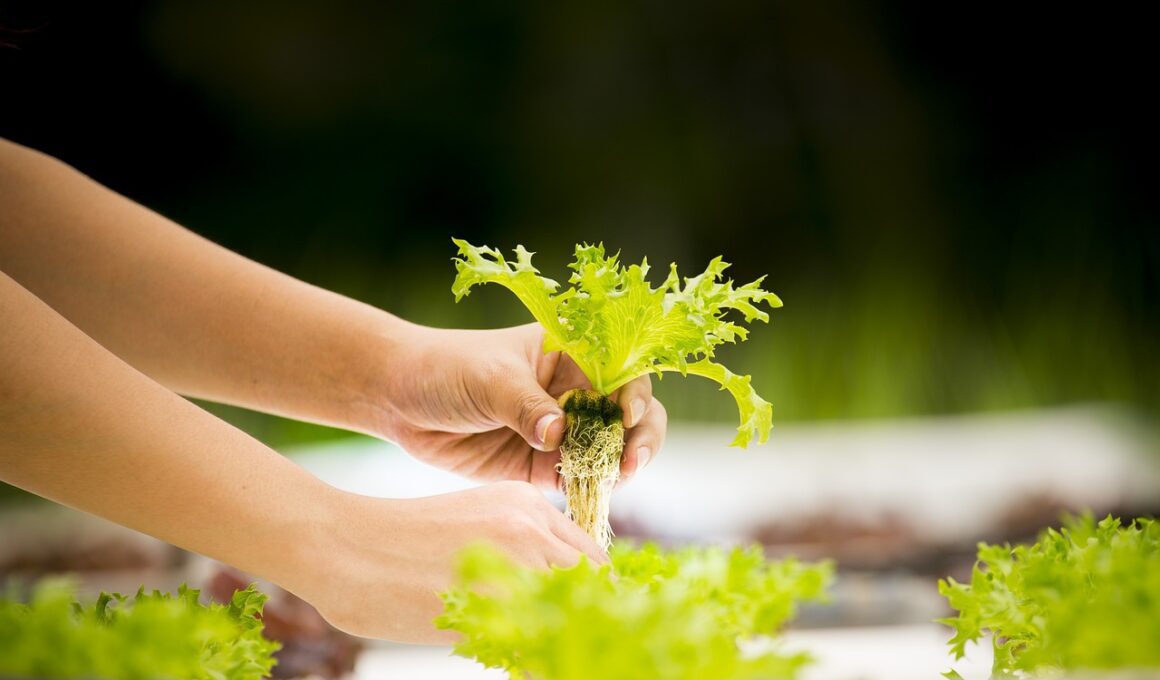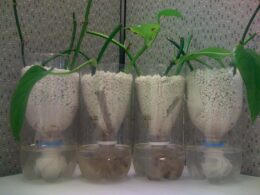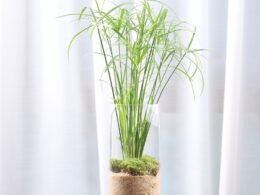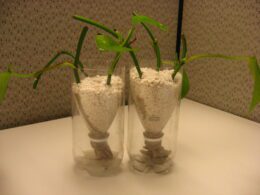Are you new to hydroponics and wondering if boiled water is safe to use? Hydroponic gardening allows you to grow plants without soil, using nutrient-rich water as the growing medium. The quality of the water is crucial for the success of your hydroponic system, and you may be wondering if boiled water is a good option.
In this article, we’ll explore whether boiled water is safe for hydroponics and what factors you should consider before using it in your system. When it comes to hydroponics, water quality is essential. The water you use must be free from harmful contaminants, and it should contain the necessary nutrients for your plants to thrive.
Boiling water is one way to remove impurities and kill harmful bacteria, but is it safe for hydroponics? This article will answer your questions and provide you with tips on how to ensure your hydroponic system is successful. So, let’s dive in and learn more about using boiled water for hydroponics.
Understanding Hydroponic Water Quality
You’ll want to ensure the water you’re using for your hydroponic setup is of the highest quality possible to ensure your plants thrive. This means paying close attention to the water’s pH levels and nutrient solutions.
The pH levels of your water can greatly affect the health of your plants, so it’s important to monitor and adjust them accordingly. Additionally, using nutrient solutions specifically designed for hydroponic systems can provide your plants with the necessary nutrients they need to grow healthy and strong.
Boiled water may seem like a tempting option for your hydroponic setup, but it’s important to note that it may not be the best choice. While boiling water can kill off harmful bacteria and pathogens, it can also alter the water’s pH levels, making it unsuitable for your plants. Additionally, boiling water can remove important minerals and nutrients that your plants need to grow.
For these reasons, it’s best to use high-quality, filtered water for your hydroponic system. To ensure the best water quality for your hydroponic setup, consider investing in a water filtration system. This can help remove any impurities or minerals that may be harmful to your plants.
Additionally, regularly testing your water’s pH levels and nutrient solutions can help you make any necessary adjustments to ensure your plants are getting the best possible care. By taking these steps, you can ensure your hydroponic setup is thriving and producing healthy, vibrant plants.
Boiled Water for Hydroponics
If you’re considering using boiled water for your hydroponic setup, there are both benefits and drawbacks to keep in mind.
On the one hand, boiling water can kill harmful bacteria and pathogens that might otherwise harm your plants.
On the other hand, boiling water can also strip it of important minerals and nutrients that your plants need to grow.
So while boiled water can be a useful tool in hydroponics, it’s important to use it wisely and with caution.
Benefits of Boiled Water
The advantages of utilizing boiled water in your hydroponic system are numerous and can greatly enhance the growth of your plants. Boiling water kills harmful bacteria and pathogens that may be present in tap water, making it safer for your plants to grow in.
In addition, boiling water also removes chlorine and other chemicals that are often found in tap water, which can be harmful to plants in large quantities. Boiled water also has a higher oxygen content, which is essential for the healthy growth of your plants.
The heat from boiling water releases oxygen bubbles, which then dissolve in the water and are absorbed by the roots of your plants. This increased oxygenation can lead to faster growth and better nutrient uptake, making boiled water a great choice for your hydroponic system.
So next time you’re filling up your hydroponic reservoir, consider using boiled water for its numerous health benefits and potential to enhance the growth of your plants.
Drawbacks of Boiled Water
Don’t overlook the potential drawbacks of using boiled water in your hydroponic system. While boiling water can help kill harmful bacteria and pathogens, it’s important to consider how it could impact the pH balance and nutrient levels of your plants.
Boiling water does not remove minerals and other substances that can affect the pH level of your hydroponic system. This could lead to an imbalance that can negatively impact the growth and yields of your plants.
Furthermore, the risks of using boiled water in hydroponics are not limited to pH balance. Boiling water can also remove certain nutrients that plants need to grow. For example, boiling water can remove dissolved oxygen and nitrogen, which can be essential for plant growth.
Therefore, it’s important to test the nutrient levels of your hydroponic system regularly if you’re using boiled water. You may need to supplement the water with additional nutrients to ensure that your plants are getting everything they need to thrive.
Factors to Consider
When considering the factors involved in growing plants without soil, it’s important to think about all the variables that affect their health and growth.
One of these factors is the water you use in your hydroponic system. Although boiling water can eliminate harmful bacteria and pathogens, it can also alter the pH levels and nutrient solution of the water. This means that the plants may not receive the proper nutrients they need to grow.
Another factor to consider is the temperature of the water. Boiling water can increase the temperature of the water, which can be harmful to the plants. Ideally, the water in your hydroponic system should be between 65-75 degrees Fahrenheit. If the water is too hot, it can stress the plants and slow down their growth. It’s important to monitor the temperature of the water in your system to ensure that it’s within the appropriate range.
Lastly, it’s important to consider the quality of the water you use. Boiling water can remove some contaminants, but it won’t necessarily remove all of them. It’s important to use clean, filtered water in your hydroponic system to ensure that the plants aren’t exposed to harmful chemicals or toxins.
By considering these factors, you can ensure that your hydroponic system is set up for success and that your plants will grow healthy and strong.
Alternatives to Boiled Water
If you’re looking for other options besides boiling to keep your plants healthy in a hydroponic system, there are some alternatives to consider. One option is to use filtered water. This can remove impurities that may harm your plants and can lead to better growth. You can purchase a water filter system or use a filter pitcher to achieve this.
Another alternative is to use rainwater. It’s naturally filtered and can be collected in a rain barrel. Rainwater can be a good source of nutrients for your plants, as it contains minerals and organic matter. However, it’s important to note that rainwater can also contain pollutants, so it’s best to use it in moderation and not as the sole source of water for your hydroponic system.
Ultimately, the type of water you use can have an impact on plant growth in a hydroponic system. By exploring filtered water options and considering the use of rainwater, you can provide your plants with the best possible environment for growth. It’s important to regularly monitor your plants and adjust your water sources as needed to ensure optimal health.
Tips for Hydroponic Success
If you’re considering using boiled water for hydroponics, there are a few things you should keep in mind. While boiled water can be a good alternative to tap water, there are other factors that can affect the success of your hydroponic setup.
In this subtopic, we’ll explore some tips for ensuring that your hydroponic garden thrives.
First and foremost, pH management is key. The pH of your nutrient solution can have a big impact on the health of your plants. Ideally, you want your solution to be slightly acidic, with a pH between 5.5 and 6.5. If your pH is too high or too low, your plants may not be able to absorb nutrients properly, which can lead to stunted growth or other problems.
To ensure that your pH stays within the desired range, invest in a reliable pH testing kit and adjust your solution as needed.
In addition to pH management, it’s important to pay close attention to your nutrient solution. Different plants have different nutrient requirements, so make sure you’re using a solution that’s appropriate for the crops you’re growing.
You may also need to adjust the concentration of your solution over time, as your plants grow and their nutrient needs change.
By staying on top of your pH management and nutrient solution, you can help ensure that your hydroponic garden thrives.
Frequently Asked Questions
How often should I change the water in my hydroponic system?
To maintain healthy plants in your hydroponic system, it’s important to regularly change the water. Water quality plays a crucial role in nutrient absorption, so you want to make sure the water is fresh and free from any contaminants.
A good rule of thumb is to change the water every two to three weeks, or whenever you notice the water becoming cloudy or discolored. Keeping a regular schedule for water changes will help prevent the buildup of harmful bacteria and ensure your plants are getting the nutrients they need to thrive.
Remember, taking care of your hydroponic system and maintaining water quality is key to a successful harvest.
Can I use tap water for hydroponics?
When it comes to hydroponics, the type of water you use can make a big difference in the health and growth of your plants. Tap water is a common choice, but it can contain minerals and chemicals that could harm your plants over time.
Boiling tap water is an option that some growers use to remove some of these harmful substances, but it can also remove beneficial minerals that plants need. Additionally, boiling water takes time and energy, which may not be practical for everyone.
Alternative water sources like purified or distilled water can be a good choice, but they can also be expensive. Ultimately, the best approach will depend on your individual setup and preferences.
What pH level should my hydroponic water be?
To ensure optimal plant growth in hydroponics, it’s important to maintain a specific pH level in the water. The ideal pH range for hydroponic systems is between 5.5 and 6.5.
You can use various pH testing methods to determine the pH level of your hydroponic water, including pH test strips or digital pH meters. If you find that the pH is too high or too low, you can adjust it by adding pH up or pH down solutions.
It’s important to regularly monitor and adjust your hydroponic water’s pH levels to ensure healthy plant growth. Remember, maintaining a proper pH level is crucial for your plants to absorb nutrients effectively and grow strong and healthy.
Do I need to add nutrients to boiled water before using it in hydroponics?
When it comes to using boiled water in hydroponics, there are both benefits and drawbacks to consider. On the one hand, boiling water can help to kill off any harmful bacteria or organisms that may be present in the water, making it safer for your plants to grow.
However, boiling water can also remove some of the beneficial minerals and nutrients that your plants need to thrive. This means that if you’re using boiled water in your hydroponic system, you’ll likely need to add in some additional nutrients to keep your plants healthy and strong.
Ultimately, whether or not you should use boiled water in your hydroponics will depend on your specific needs and preferences, so be sure to do your research and make an informed decision before getting started.
Can I reuse hydroponic water from a previous crop for a new crop?
Looking to reuse the water from your previous hydroponic crop? Before doing so, it’s important to sterilize the water to prevent any potential diseases or pests from carrying over.
Water sterilization techniques such as UV light treatment or filtration can effectively eliminate any harmful bacteria or fungi. Not only is it a safe practice, but it also has benefits for your new crop.
Recycled hydroponic water contains nutrients and minerals that can promote healthy growth, reduce waste, and ultimately save you money. So, don’t hesitate to reuse your hydroponic water, just make sure to sterilize it first for optimal results.
Conclusion
So, can you use boiled water for hydroponics? The answer is yes, but it depends on a few factors.
Boiling water can help remove harmful bacteria and pathogens, making it safe for your plants. However, it can also remove necessary minerals and nutrients that your plants need to thrive.
Before using boiled water in your hydroponic system, it’s important to test its pH levels and nutrient content. You may need to adjust the pH levels or add nutrients to ensure your plants have everything they need to grow.
Alternatively, you can use filtered or distilled water, which can provide a more consistent and reliable source of water for your hydroponic system.
By taking these factors into consideration, you can help ensure the success of your hydroponic garden.









